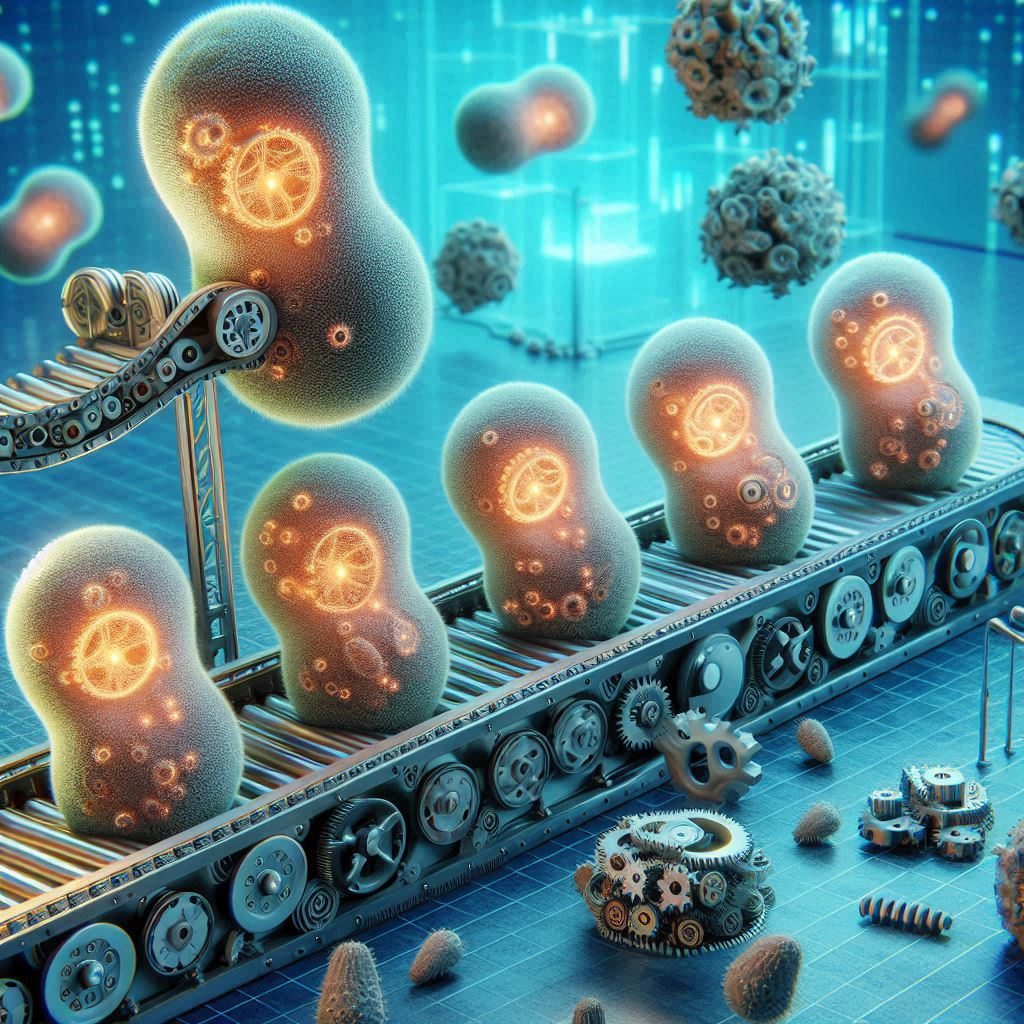A newly identified identified cellular mechanism allows mitochondria to recycle localized damage and maintain healthy function.
from Women's Health News -- ScienceDaily visit
Wednesday, August 21, 2024
Monday, August 19, 2024
Preliminary study shows potential of Manuka honey as a nutraceutical for breast cancer
A new study found that Manuka honey could potentially be an alternative, natural option for breast cancer prevention and treatment -- particularly for estrogen receptor (ER)-positive breast cancer, the most common subtype of breast cancer that accounts for about 70-80% of all breast cancer cases.
from Women's Health News -- ScienceDaily https://ift.tt/aUns39p
from Women's Health News -- ScienceDaily https://ift.tt/aUns39p
Preliminary study shows potential of Manuka honey as a nutraceutical for breast cancer
A new study found that Manuka honey could potentially be an alternative, natural option for breast cancer prevention and treatment -- particularly for estrogen receptor (ER)-positive breast cancer, the most common subtype of breast cancer that accounts for about 70-80% of all breast cancer cases.
from Breast Cancer News -- ScienceDaily https://ift.tt/aUns39p
from Breast Cancer News -- ScienceDaily https://ift.tt/aUns39p
Friday, August 16, 2024
'Symptom triggered' testing can pick up early-stage aggressive ovarian cancer
Symptom triggered testing, prompted by symptoms such as pain, abdominal bloating/swelling, and feeling full soon after starting to eat, can pick up early-stage aggressive ovarian cancer in 1 in 4 of those affected, according to new research.
from Women's Health News -- ScienceDaily https://ift.tt/TgqWJ4S
from Women's Health News -- ScienceDaily https://ift.tt/TgqWJ4S
Wednesday, August 14, 2024
New vaccine against cervical cancer combines prophylactic and therapeutic activity
A vaccine against cancer-causing human papillomaviruses (HPV) is intended to help increase the rate of HPV vaccinations, particularly in developing countries. Scientists developed a completely new vaccination concept for this purpose. The vaccine is inexpensive and protects mice against almost all cancer-causing HPV types. In addition to preventing new infections, the vaccine also triggers cellular immune responses against HPV-infected cells and may therefore also have a therapeutic effect against existing infections.
Monday, August 12, 2024
Fallopian tubes can be safely removed during sterilization, study suggests
Women whose Fallopian tubes are removed during sterilization via laparoscopy have only marginally more surgical complications than those whose tubes are simply cut, a study shows. The removal, salpingectomy, is a safe procedure that can help protect against future ovarian cancer, according to a new study.
from Women's Health News -- ScienceDaily https://ift.tt/H6ACTdq
from Women's Health News -- ScienceDaily https://ift.tt/H6ACTdq
Saturday, August 10, 2024
Link discovered between sensory neurons and breast cancer metastasis
from Breast Cancer News -- ScienceDaily link
Monday, August 5, 2024
Drug-chemo combo increases cancer treatment efficacy
A new study finds that giving a fatty acid inhibitor alongside chemotherapy could improve the treatment efficacy for patients with brain metastases from triple negative breast cancer.
from Breast Cancer News -- ScienceDaily https://ift.tt/RXoPfjM
from Breast Cancer News -- ScienceDaily https://ift.tt/RXoPfjM
Wednesday, July 31, 2024
New AI tool predicts risk for chronic pain in cancer patients
With 80% accuracy, an AI-trained tool could help doctors identify which patients to treat for chronic pain.
Thursday, July 25, 2024
Sodium channels in breast cancer cells a promising target for future treatments, study reveals
A new study adds to evidence which suggests treating breast cancer patients with sodium channel blockers could be a promising future treatment to prevent the spread of cancer during the gap between diagnosis and surgery.
from Breast Cancer News -- ScienceDaily https://ift.tt/uboAaYm
That's an interesting development in cancer research! The idea of using sodium channel blockers as a potential treatment for preventing the spread of breast cancer is a promising avenue that could have significant implications for patients in the future.
Sodium channels play a crucial role in the electrical signaling of cells, including cancer cells. By targeting these channels with blockers, researchers aim to disrupt the signaling pathways that promote the spread of cancer cells, a process known as metastasis.
Metastasis is a key feature of cancer progression and poses a significant challenge in treating the disease effectively. If this new approach proves to be successful, it could offer a novel strategy to prevent the spread of breast cancer to other parts of the body, potentially improving outcomes for patients.
As with any new treatment approach, further research and clinical trials will be needed to fully understand the safety and effectiveness of using sodium channel blockers for breast cancer treatment. It's essential to continue studying this potential therapy to ensure that it offers benefits to patients while minimizing potential risks and side effects.
Overall, the prospect of using sodium channel blockers to prevent the spread of breast cancer is an exciting development that underscores the ongoing efforts to advance cancer treatment strategies and improve outcomes for patients.
from Breast Cancer News -- ScienceDaily https://ift.tt/uboAaYm
Subscribe to:
Comments (Atom)






